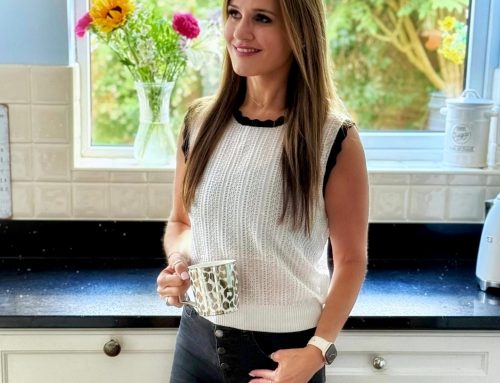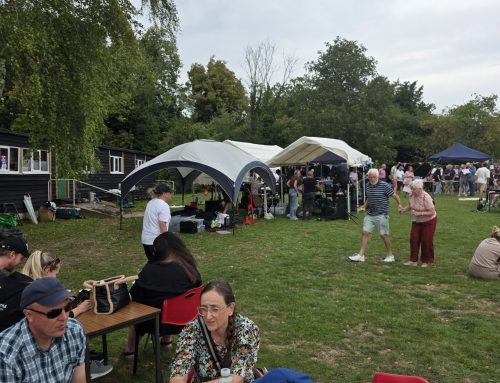In the UK, many households are concerned about the rising cost of energy. Whilst we’re hoping for announcements of policies and caps that may help keep bills manageable, people across the country are also looking at ways they can reduce their energy usage. Conserving energy at home will be a necessity this winter but aside from turning the heating down, or even off, it’s difficult to know what else can be done. Truthfully, even being extremely conservative with our gas and electricity will not offset the rise in our bills, however, it’s important we do all we can to reduce the costs in sensible ways that will not leave us cold at home.
Here are a few ways you may not be aware of that you can conserve energy at home:
Turning off Plug Sockets

Not every appliance will be using energy when the socket it’s plugged into is switched on. However, some appliances, known as ‘vampire electronics’ are using energy even when not in active use and this is wasted electricity. These appliances include the following:
Televisions – TVs left on standby are still using energy. They will still receive a supply of energy, albeit a low one, so they can communicate with the remote control.
Computers – Again, computers left on standby are still using electricity. Think of it as sleeping with one eye open. They’re not active but they’re still receiving power.
Charging Devices – It’s great and often necessary to have a full battery for our laptops, tablets and phones. However, many of us leave them on all night which is far longer than they need to charge. Try to unplug devices when they are charged.
Gaming Consoles – Again, left idle these are using power. Turning these off at the plug won’t save you a fortune but it will contribute to lowering your bill.
Turning these appliances off at the plug socket will help with conserving energy at home and could avoid needless charges for electricity that is not beneficial. Of course, you may have to be more patient when turning these electronics on as they can take longer to wake up. You’ll also need to get the whole family onboard, but even the small steps can make a big difference. Formally, leaving a device on standby may have only cost you £30 per year but with the cost of kwh going up this could be double or more in 2022.
Blinds and Curtains
This winter you’ll be wanting to ensure no cold air is coming in from outside and no warmth is escaping. Therefore, it may be time to look at your curtains and blinds. High-quality curtains can reduce heat loss by circa 40%. Thick floor-length curtains are best and they should be hung as close to the window pane as possible.
Blinds are not as effective in the winter as curtains but are effective when used alongside fabric drapes to provide extra insulation. If you’re lucky enough to have west-facing windows, keep curtains open during daylight hours to allow the sun to warm your home. Then, at dusk, close your blinds and curtains so you’re conserving energy at home.
Air Drying
Those of us lucky enough to have tumble dryers may be concerned about using them. According to the Energy Saving Trust, an average tumble dryer cycle uses 4.5kwh so doing this multiple times per week will raise your energy bill.

An alternative to the tumble dryer is air drying using a clothes horse. This can be difficult in larger households with multiple occupants and lots of clothes to wash. Yet, it can also be challenging in smaller homes. Aside from the space needed to hang clothes up to dry indoors, they can also take a long time, especially if your heating is turned down. Drying clothes indoors can also trigger damp problems and the solution of opening your windows is unlikely to be a popular one during winter. However, you might consider a dehumidifier. Yes, there is a cost to this but dehumidifiers use only 0.427kwh per hour (depending on the model) so if you keep a close eye on how long you have them switched on, they can be a cheaper option than tumble drying.
In regards to your washing machine and dishwasher, on some tariffs, it’s cheaper to run these at night. If you’re not sure if that’s the case with your supplier and energy set-up, give them a call and check. Just don’t forget you’ll have wet clothes to hang up in the morning.
Conserve Water
Heating water is one of the most impactful ways we use energy in the home. There are a few big changes we can make to reduce the amount of water we’re heating. Having showers, as opposed to baths, will use far less hot water. So if you’re a dedicated soaker it may be something to consider, even if it’s just trying to switch your hot bath for an invigorating shower every other time.

We also use a lot of hot water in the kitchen and we’re often heating water we don’t use. Such as boiling a full kettle for only one cup of tea. Just heating what we need uses less energy and although this may seem like a tiny amount of wasted electricity, if we’re doing this three times a day it soon adds up.
It’s also time to address this whole ‘soaking the dishes’ theory. Otherwise known as ‘delaying the washing up.’ Ok, so soaking the dishes in warm water can soften grease and grime, making them easier to wash later. Yet, you’re using double the hot water by doing the washing up in two stages. Also, if you’re rinsing dishes before placing them in the dishwasher, you needn’t use hot water since it’s the pressure of the water you’re employing, not the temperature. Speaking of the dishwasher, try to only put the machine on when it’s full and you will find you’re using it a little less.
Economical Heating
The cost of energy is causing a lot of anxiety in the UK and some people are even asking themselves if they can afford to turn their heating on at all this winter. However, living in a cold home is not only uncomfortable but can also cause several health problems whether or not you are in the vulnerable category.
Turning the heating on may be a concerning prospect, with the rising cost of gas and electricity. Therefore, we must warm our homes as effectively as possible. Before we dispense any advice, we know a lot of this will be obvious and none of it is meant to be patronising. Only, sometimes by avoiding talking about the seemingly obvious, we’re making assumptions that may mean we miss out on useful advice. So, here are a few small ways of conserving energy at home, in regards to heating:
- Don’t have the heating up higher than needed
- Turn the radiators down in rooms when you’re not using them and turn them up in the ones you’re occupying
- Move furniture and curtains away from radiators as they will be blocking heat
- Whilst you should set a timer so you’re only heating your home when you’re there, avoid turning your heating off and on too much as doing so can use excess energy
- Close doors in rooms you’re not heating but otherwise, keep doors open so the heating can flow through your home
- A lot of people are talking about radiator reflector foil and whether this really works. The good news is that it does help to make better use of the heat your radiator produces and it’s simple to install. The bad news is that it’s selling fast!
- Take care of your radiators, making sure they’re functioning well and bleeding them regularly to keep them efficient
The biggest barrier to heating a home effectively is poor insulation and uneconomical boilers. If you have these types of problems in your home then much of the above will make only a very small impact on reducing your bill. Check out this article from Money Saving Expert on grants that may be available to help you will boilers and insulation.






